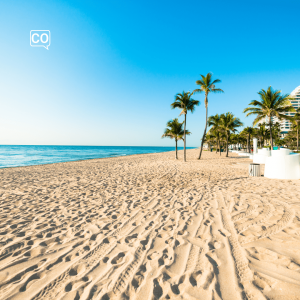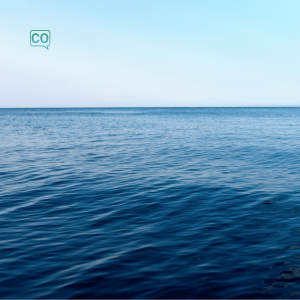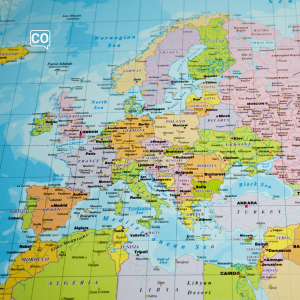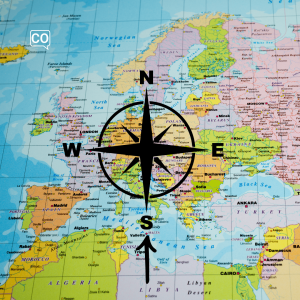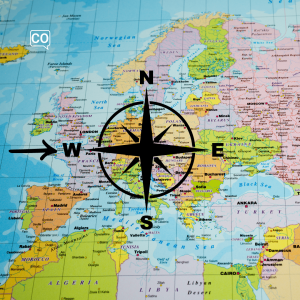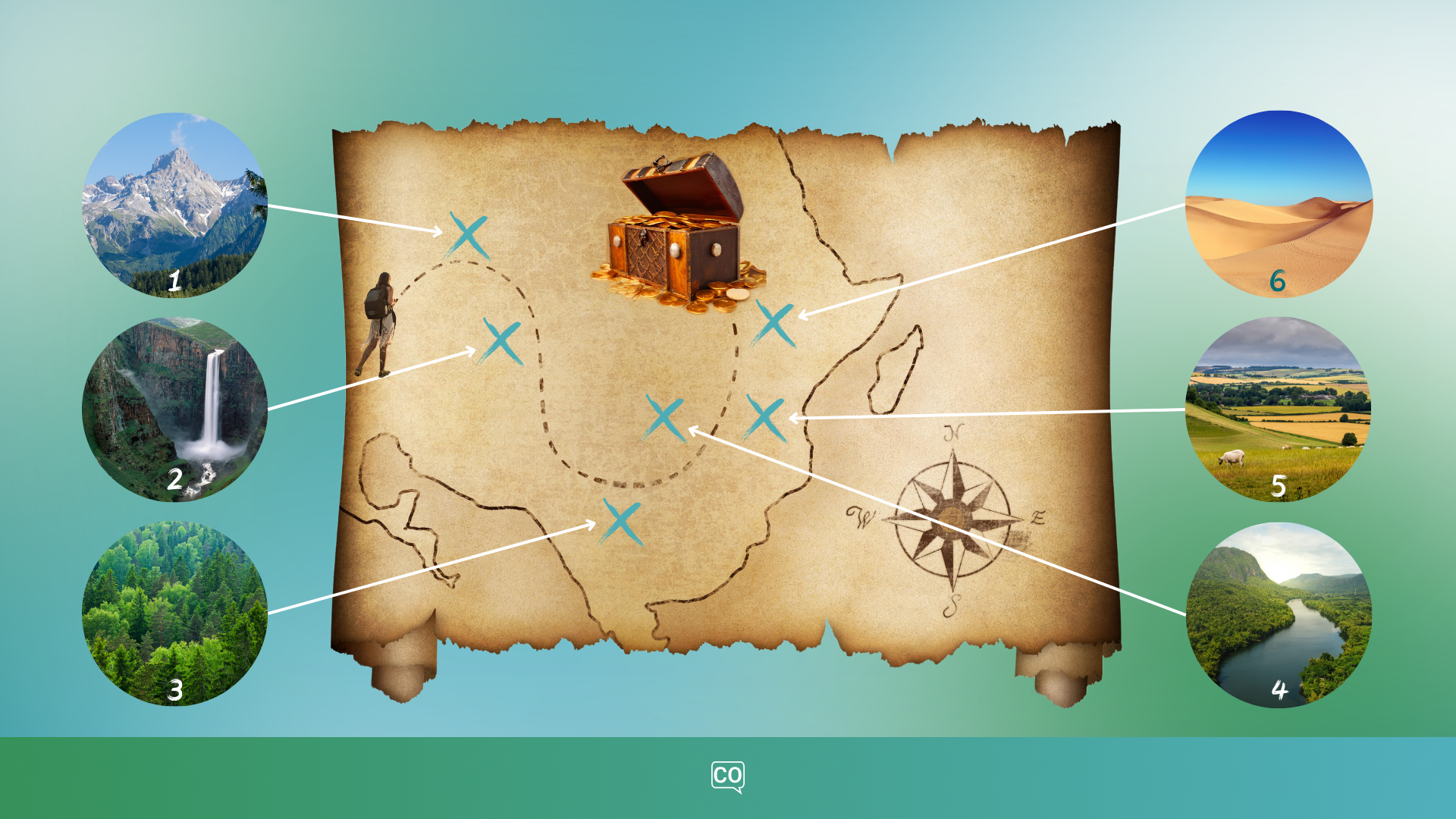¡El mundo es enorme!

Learning goals:
- Describiendo paisajes (Describing landscapes)
- Indicando lugares en el mapa (Indicating places on the map)
-
Las preposiciones de lugar:
"a, de, desde,..." (The prepositions of place: "a, de, desde,...") - El Tajo y el Ebro: los ríos más grandes de España (The Tagus and the Ebro: the largest rivers in Spain)
Learning module 2 (A2): Naturaleza y medio ambiente (Nature and environment)
Recap exercises of the previous lesson
Teaching guidelines +/- 60 minutes
Core vocabulary (14)
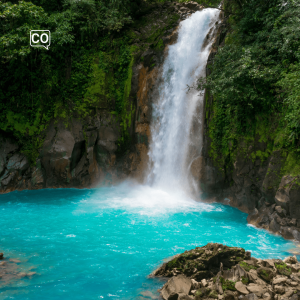
La cascada está en el norte del mapa.
(The waterfall is in the north of the map.)
La cascada
(The waterfall)

Él muestra su carné de identidad para facturar.
(He shows his identity card to check in.)
Mostrar
(To show)
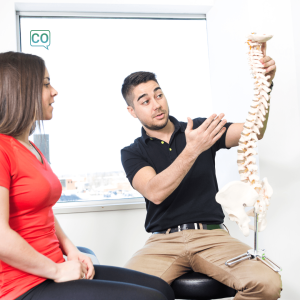
Él describe el contenido de la maleta antes de viajar.
(He describes the contents of the suitcase before travelling.)
Describir
(To describe)
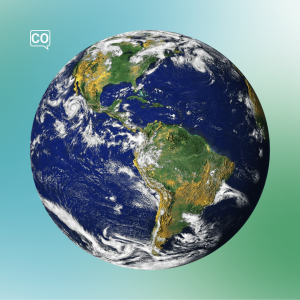
El mundo es enorme y lleno de maravillas naturales.
(The world is enormous and full of natural wonders.)
El mundo
(The world)
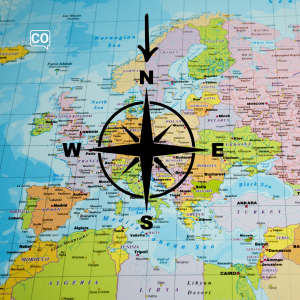
El norte del mapa muestra la playa y la cascada.
(The north of the map shows the beach and the waterfall.)
El norte
(The north)
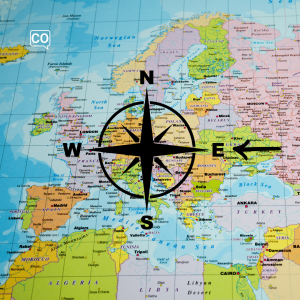
El este de África es muy interesante para los viajeros.
(The east of Africa is very interesting for travellers.)
El este
(The east)
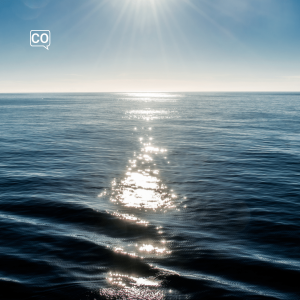
El océano está al oeste del continente.
(The ocean is to the west of the continent.)
El océano
(The ocean)
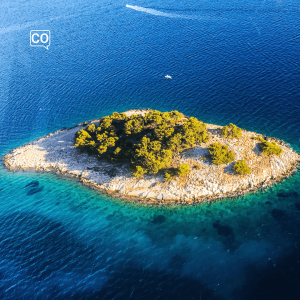
La isla está al norte del océano y al este del continente.
(The island is to the north of the ocean and to the east of the continent.)
La isla
(The island)
Listening materials
Our listening materials implement the verbs, vocabulary and grammar topics of this lesson. Audio and video available!
A2.14.1 Diálogo: Ana y Pedro viajan por el mundo
Spanish A2.14.1 Ana and Pedro travel around the world
Ana y Pedro hablan sobre su próximo viaje y exploran el mapa del mundo, buscando islas, playas y cascadas.
(Ana and Pedro talk about their upcoming trip and explore the world map, looking for islands, beaches, and waterfalls.)
Teaching guidelines +/- 15 minutes
A2.14.2 Gramática: Las preposiciones de lugar: "a, de, desde,..."
Spanish A2.14.2 The prepositions of place: "a, de, desde,..."
(Learn the prepositions of place in this lesson using vocabulary related to nature and the environment.)
Teaching guidelines +/- 15 minutes
A2.14.3 Cuento corto: Viajar con un mapa
Spanish A2.14.3 Travelling with a Map
Una historia corta sobre un chico que viaja por el mundo usando su mapa.
(A short story about a boy who travels around the world using his map.)
Teaching guidelines +/- 15 minutes
A2.14.4 Cultura: El Tajo y el Ebro: los ríos más grandes de España
Spanish A2.14.4 The Tagus and the Ebro: the largest rivers in Spain
Descubre cómo los ríos Tajo y Ebro cruzan el país, conectando ciudades y paisajes increíbles.
(Discover how the Tagus and Ebro rivers cross the country, connecting cities and incredible landscapes.)
Teaching guidelines +/- 10 minutes
Exercises
These exercises can be done together during conversation lessons or as homework.
Exercise 1: Find the words
Instruction: Find the words, mark them and make sentences with the words.
Show answers Show hintsHints
The south , The world , The east , The north , To show , The west
Answers
Score: 0/6
| El este | (The east) |
| El oeste | (The west) |
| El norte | (The north) |
| El mundo | (The world) |
| El sur | (The south) |
| Mostrar | (To show) |
Exercise 2: Reorder sentences
Instruction: The words in these sentences have been shuffled! Sort them so that they make a valid sentence again and translate.
Show answers Show translationExercise 3: Translate and make sentences
Instruction: Translate the words and phrases below and use it in a conversation or text.
Show answersExercise 4: Translate and use in a sentence
Instruction: Translate and say the word out loud. Use the word in a sentence.
Show translation|
1.
Enorme
|
(Enormous) |
|
2.
El mundo
|
(The world) |
|
3.
El este
|
(The east) |
|
4.
El mapa
|
(The map) |
|
5.
La cascada
|
(The waterfall) |
Exercise 5: Conjugación verbal
Instruction: Choose the correct word, read the sentence out loud and translate.
Show answers Show translationSeguir (Presente, indicativo), Buscar (Presente, indicativo)
1. Nosotros ... el recorrido del aeropuerto.
2. Ellos ... las señales para el control de seguridad.
3. Nosotros ... el mejor lugar del mundo.
4. Vosotros ... al grupo de turistas a la excursión.
5. Vosotros ... el equipaje en el aeropuerto.
Exercise 6: The prepositions of place: "a, de, desde,..."
Instruction: Choose the correct word, read the sentence out loud and translate.
Show answers Show translationa lo largo de, fuera de, a, A través del, junto, desde, alrededor de, enfrente
1. Viajamos ... la isla para admirar su naturaleza.
2. El barco se ve ... la isla en el océano.
3. La ciudad tiene un parque enorme ... a la plaza.
4. ... mapa, el guía turístico nos muestra cómo llegar al centro.
5. Empezamos nuestro viaje ... el sur de España.
6. Tengo que ir ... la playa hasta llegar a la casa.
7. El mar está ... de mi casa.
8. Puedes buscar lugares bonitos ... todo el mundo.
Exercise 7: Translate and make sentences
Instruction: Translate the words and phrases below and use it in a conversation or text.
Show answersConversation exercise
Teaching guidelines +/- 10 minutes
- Eva hace senderismo por diferentes paisajes. (Eva hikes through different landscapes.)
- Describe los paisajes que ella atraviesa en su camino hacia el tesoro. (Describes the landscapes that she passes on her way to the treasure.)
Example phrases:
- Eva pasea por la playa. (Eva walks along the beach.)
- ...
Appendix 1: Extended vocabulary table
Core vocabulary
(14):
Verbs: 2,
Adjectives: 1,
Nouns: 11,
Context vocabulary:
1
| Spanish | English |
|---|---|
| Describe | Luis describes the island and the sea as peaceful places. |
| Describir | To describe |
| El este | The east |
| El mapa | The map |
| El mar | The sea |
| El mundo | The world |
| El norte | The north |
| El océano | The ocean |
| El oeste | The west |
| El sur | The south |
| Enorme | Huge |
| La cascada | The waterfall |
| La isla | The island |
| La playa | The beach |
| Mostrar | To show |
Appendix 2: Verb conjugation tables for this lesson
Seguir (to follow)
Exercises and examples phrases
- yo sigo I follow
- tú sigues you follow
- él/ella sigue he/she follows
- nosotros/nosotras seguimos we follow
- vosotros/vosotras seguís you follow
- ellos/ellas siguen they follow
Buscar (to search)
Exercises and examples phrases
- yo busco I search
- tú buscas You search
- él/ella busca he/she searches
- nosotros/nosotras buscamos we search
- vosotros/vosotras buscáis you search
- ellos/ellas buscan They search
Exercise: Verb conjugation
Instruction: Choose the correct word, read the sentence out loud and translate.
Show answers Show translationSeguir (Presente, indicativo), Buscar (Presente, indicativo)
1. Nosotros ... el recorrido del aeropuerto.
2. Ellos ... las señales para el control de seguridad.
3. Yo ... la oficina de turismo.
4. Nosotros ... el mejor lugar del mundo.
5. Él ... una isla desierta.
